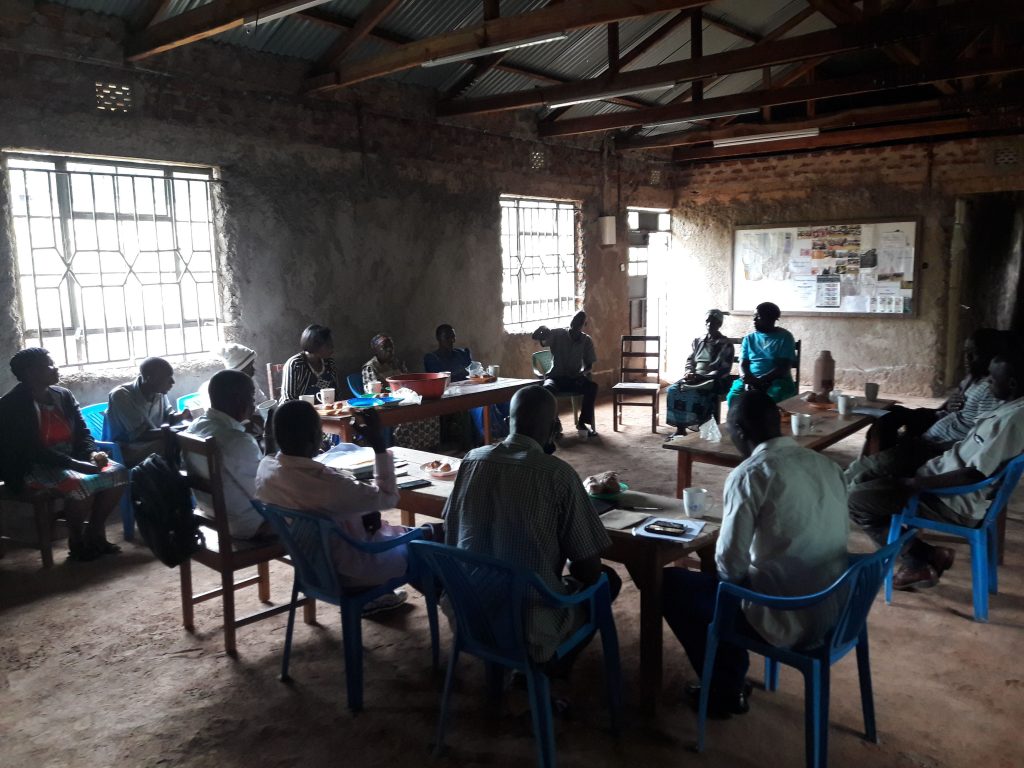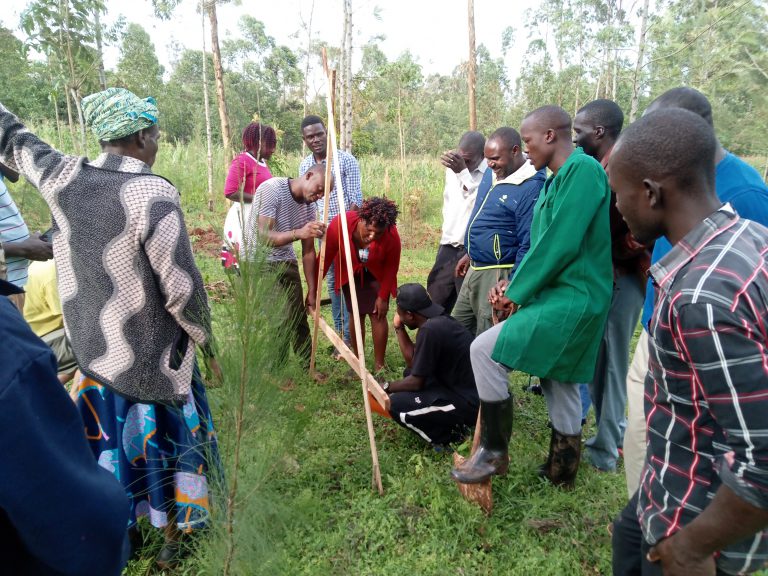In western Kenya, a sustainability cooperation network is to be set up with several organizations that are pursuing a common strategy for the dissemination of permaculture and sustainability concepts, expanding their project locations into demonstration and learning centers, offering a wide range of educational formats and jointly developing a curriculum for the professional training of sustainability Develop and implement actors and permaculture designers.
The project contributes to securing the livelihood of the rural population in western Kenya, taking into account the challenges posed by climate change.
Background:
In Kenya, there are regular regional food shortages caused by crop failures. Most farmers are vulnerable to the effects of climate change due to a lack of education and scarce resources. Many give up and migrate to the big cities. Life as a farmer is considered arduous and miserable, so it has a bad reputation. On the other hand, agriculture offers potential for creating employment and income and allowing villages to flourish again. In western Kenya, permaculture has proven to be a suitable concept for ensuring the self-sufficiency of village communities and offers the rural population opportunities to strengthen their self-empowerment in the local context.
Plan:
In March 2020, a network and future workshop took place with representatives from six Kenyan organizations (CADIF Kenya, OTEPIC, Badilisha, Kipepeo, Books for Trees and Ndoto Zetu), which are dedicated to education for sustainability in rural areas in western Kenya Building partnerships to spread the SDGs and promote their practical implementation through permaculture.
Together with Kipepeo, Soned e.V. is planning a permaculture seminar for multipliers in autumn 2021 in order to improve permaculture education, especially in Western Kenya, and to build up the necessary capacities such as permaculture learning centres with trained staff.
East Africa still depends on certified Western permaculture teachers to empower its residents. As innovation emerges from the process of stakeholders understanding the context, one of the ways to trigger this process is to give Kenyans back the autonomy to educate and develop their community. The course aims to increase the technical capacities of the organizations involved in order to develop high-quality permaculture learning centers and to enable farmers and self-help groups as well as environmental clubs in schools to implement sustainability strategies.
Project sponsor: SONED Berlin-Friedrichshain e.V.
Project partner: Soned eV – Southern Networks for Environment and Development
Funding year: since 2020
Project No.: 102-20 si


